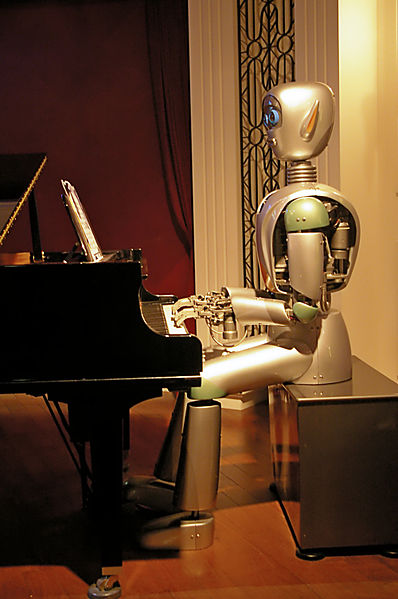We're stuck in an odd place in America today where immigration is concerned. On the one hand, nearly everyone agrees that we must have closed borders, with selective admissions. But the fact is that millions of illegal immigrants are already here, and many more are in the process of coming. Building a truly secure border would require expensive fencing, cameras and patrol units. Even then, there would likely be gaps.
So we are faced with tackling the problem via law enforcement. Employers of illegal immigrants are targeted, and any illegal immigrants found are deported. Yet this solution is difficult for various reasons. Employers have many incentives to hire illegal immigrants. They are plentiful, willing to work for little pay, and as illegal immigrants they are easier to exploit (poor conditions, safety hazards, regulations, etc.). The immigrants have every incentive to work as they have risked all to be here. Surviving without work is much more difficult. Dealing with state welfare institutions is either impossible or puts them at risk of deportation, as does any illegal activity.
From a human rights standpoint, every action targeted at illegal immigrants threatens American citizens who might find their rights diminished. The balance of rights vs. security is an old and complicated one. We must find a compromise between what rights we are willing to see sacrificed for every new security we agree to. With the vast majority of illegal immigrants coming from the Mexican border, being a largely Hispanic population, new security measures designed to target illegal immigrants is going to affect Hispanic Americans disproportionately. We see this in the new Arizona law sb1070 which places Hispanics in Arizona at much greater risk of having their rights violated.
A further complication, and one which may be the most tragic of all, is the issue of birthright citizenship and family dissolution. Illegal immigrants often either bring their families with them to America, or have children once they are here. If one parent is arrested and deported, the consequences to the family are severe. In many cases the children might have been here illegally, possibly for most of their lives, and thus arrest and deportation means incredible burden. If a child has citizenship, the family is then faced with the prospect of how to secure for them the future they were guaranteed by law.
So this is where we are. All of this is going on now, with no likelihood of change in the near future. Profound resentment, especially in these economic times, has reached the boiling point. The governor of Arizona is literally either making up stories herself, or repeating the lies of others:
"Well, we all know that the majority of the people that are coming to Arizona and trespassing are now becoming drug mules. They're coming across our borders in huge numbers. The drug cartels have taken control of the immigration. … So they are criminals. They're breaking the law when they are trespassing and they're criminals when they pack the marijuana and the drugs on their backs. I believe today and in the circumstances that we are facing, that the majority of the illegal trespassers that are coming in the state of Arizona are under the direction and control of organized drug cartels, and they are bringing drugs in."
"Law enforcement agencies have found bodies in the desert either buried or just lying out there that have been beheaded."
The range of serious solutions to the situation basically range from complete security at the border no matter the cost and draconian raids and round-ups, to a more liberal policy of "amnesty", in which there is a "path to citizenship" that illegal immigrants can pursue that allows them to continue living and working here. The latter only differs from an outright open border policy in that immigrants are still deterred from entry at the border and businesses who hire illegal immigrants are penalized. This policy has been
used in the past, however generally on a case-by-case basis.
But I wonder whether we should even have closed borders at all. My general outlook on life is to not believe in anything without a good reason for doing so. Because many issues are so complicated, the authority of experts must often be trusted. Other issues are less empirical, and more matters of philosophical principle. Other issues are a robust combination of both - the experts disagree, and philosophical principle isn't unimportant. As illegal immigration seems to fall into this last category, I feel comfortable taking the radical stance that what America needs to be doing is opening our borders to most anyone who desires entry.
According to Wikipedia, the main
arguments against borders are as follows:
- That open borders are a threat to security and public safety.
- That, in prosperous countries, open borders would trigger massive immigration, straining the domestic economy.That closed borders are necessary to protect the domestic culture(s).
- That closed borders help to prevent criminals from smuggling drugs, guns and other illegal items in quantities across the border.
- That closed borders make it more difficult to smuggle people across a country's border for the purpose of slavery, prostitution and similar criminal activities.
- That open borders are unnecessary in countries with legal avenues for immigration.
The only argument I see holding much validity is number 2.
On numbers 1 and 3, I see no real threat to public safety from open borders. The vast majority of illegal immigrants are otherwise law-abiding, and criminals have not seemed to have been deterred much so far. In fact, because increased adds to the price of drugs, closed borders may in fact increase violent crime. On this front, a prevention program, possibly combined with legalization and taxation, that treats the problem of drug addictions seems a better, cheaper option.
On number 2, I'm not sure how much of a problem slavery and prostitution are. I see no reason that simple law enforcement shouldn't be given this task. Any gaps are likely already there, and the expense of a questionably secure border apparatus for solely this purpose seems inappropriate.
Number 5 isn't really an argument.
Now, it does seem reasonable to fear that completely open borders might trigger a mass-migration that the state wouldn't be able to handle. But there are a number of reasons to doubt this. First of all, if the labor market isn't able to handle them, the immigrants will quickly realize how limited their prospects are. The only alternative is then to either make ends meet through illegal means or seek help from the state. Neither seems a very attractive propositions for prospective immigrants. The idea of relocating hundreds or even thousands of miles to engage in criminal activity seems an odd life choice. What's more, illegal activity entails market pressures of its own. The state is already quite stingy with welfare payments. There seems no reason why it wouldn't still be able to require proof of citizenship for benefits.
A socio-economic and burden that does seem reasonable is the introduction of competition into the labor market. Even assuming that minimum wage laws would still be enforced, numerous occupations would suddenly face an influx of foreign workers. However, language and technical considerations would still give Americans an advantage. The occupations most at-risk would be those in which these forms of human capital would not be required to the same extent. This is the current greatest socio-economic impact of illegal immigration. There is little reason to think that it wouldn't only increase were we to open our borders.
This is where I have the most difficulty finding my own moral perspective. As a college-graduated, credentialed teacher, my job is in no way threatened by immigration. I could see future immigrants receiving credentialing and posing a threat, but that prospect doesn't seem to bother me. I know it may bother some, but I'm not sure whether I feel as though I have some God-given right to teach in America that any other equally-qualified candidate does not, regardless of citizenship. I'm perfectly willing to accept that because I face no real threat from immigrant labor competition, I am missing some possibly persuasively principled argument. But for now I can't foresee any.
As regular readers will note, I have a strong disposition towards viewing socio-economic achievement through the lens of social determinism; I believe the murderer is no more responsible for his actions than the millionaire. Maybe as such, I see no difference between an American citizen and a Mexican citizen. Why should an American have any more right to the American labor market than a Mexican? If there is no existential threat to our entire economy (in which case open borders would become moot as we would all be doomed), the difficulties presented are zero sum: any net cost to American workers presents a net gain to foreign workers.
It is at this point that I think the conversation becomes about abstract notions of nationalism, and what it means to be a citizen. I am entirely utilitarian in that I find the concept of nation-states compelling only in that they make sense in terms of practical governance. Government needs to represent the people for whom it exists. In this way the citizen gains access to democratic rights and privileges. For instance, it would not make sense to allow foreign citizens from around the globe to vote in local elections.
Foreign citizens need not enjoy every single right and privilege of citizens, but to the extent that it is practical for them to do so, they should be allowed them. As I have argued thus far, there appears no practical reason why foreign citizens should not be allowed full access to labor markets. In this way, foreign citizens would not be treated much differently than out-of-state residents. We see no problem with accepting labor competition from any other state in the union. Assuming there are no other social or economic costs, labor competition from foreign countries should be viewed no differently.
Alas, I'm afraid that there exists one last refuge in this argument, and it resides within the nationalistic notion of identity. While many Americans no doubt cling to some form of unconscious bias towards some mysterious cultural quality of "American" that in their mind serves as a line of separation between themselves and non-citizens; that somehow by being an American citizen you are in some way different, and as such entitled to special privileges. Obviously, any dark hatefulness under-girding this attitude is immoral. No human life anywhere on the planet should be considered more worthy than any other. To the extent that nationalism is used as the sole reason for valuing the quality of one life over another, the argument is really based in nothing more than personal greed and selfishness.
As has been pointed out many times before throughout our history, we are a nation of immigrants. Implicit in this conception is the idea that human liberty transcends all boundaries, especially that of the nation state. Inclusion in American society should require nothing more than an agreement to honor its rules and principles. If the only thing that separates an illegal immigrant from a legal one is whether one was given permission from the state to enter, granting that permission to all simply removes that technicality. As I mentioned previously, there is a necessary balance between security and freedom. To the extent that the foreign citizen represents no threat to our security, either economic, social or political, they should be allowed all the freedoms citizens enjoy. And that freedom includes the right to live and work here among us as equals.
















